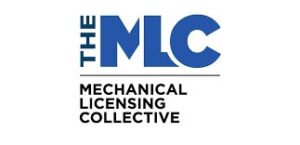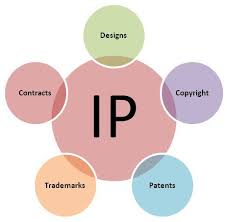HOW TO DETERMINE IF AI-GENERATED WORKS QUALIFY FOR COPYRIGHT PROTECTION
IF SO
HOW TO FILE A COPYRIGHT APPLICATION FOR AI GENERATED WORKS
Introduction
The use of sophisticated artificial intelligence (“AI”) technologies capable of producing expressive material are quickly developing. These technologies train on vast quantities of preexisting human-authored works and use inferences from that training to generate new content. The resulting output may be textual, visual or audio.
First, determine if the AI-generated work qualifies for protection.
AI ONLY WORKS
Copyright law protection only extends to works created by humans. Thus, works produced by AI and only consisting of AI generated material are not protectable under copyright law.
- If a work’s “traditional elements of authorship” (defined as literary, artistic, or musical expression or elements of selection, arrangement, etc.) were produced by a machine (using AI), the works lacks human authorship and the Office will not register it.
- If the AI technology receives solely a prompt from a human and the AI produces complex written, textual, visual, or musical works in response, the “traditional elements of authorship” are determined and executed by the technology and not by the human. The machine interprets the prompt as seen in its output.
- When an AI technology determines the expressive elements of its output, the generated material is not the product of human authorship. This is not protected by copyright law.
AI AND HUMAN AUTHORED WORKS
Works containing AI-generated material AND human-created material may, under certain circumstances, receive copyright protection. The work must contain sufficient human authorship. Keep in mind, that the copyright will only protect the human-authored aspects of the work, which are “independent of” and do “not affect” the copyright status of the AI-generated material itself.
- If a human selects or arranges the AI-generated material in a sufficiently creative way that “the resulting work as a whole constitutes an original work of authorship,” a copyright may be registered.
- If a human modifies material that was originally generated by AI technology to such a degree that the modifications meet the standard for copyright protection a copyright may be registered.
HOW TO COMPLETE THE COPYRIGHT APPLICATION FOR WORKS THAT CONTAIN BOTH AI -GENERATED MATERIAL AND HUMAN-CREATED MATERIAL
Applicants must abide by certain rules for Completing the Application for Registration of Copyright for works containing AI-generated material. The key is to sufficiently disclose what parts of the work is human created and what parts are AI-generated. Copyright protection only applies to the human-created parts of the work.
- Applicants have a duty to disclose the inclusion of AI-generated content in a work submitted for registration. Material in a work that is not protected by copyright must be disclaimed in the copyright application.
- Individuals who use AI technology in creating a work may claim copyright protection for their own contributions to that work. A brief explanation of the human author’s contribution to the work must be disclosed in the application.
FOR NEW APPLICATIONS – Use the Standard Application.
- Identify the Human Authors in the “Author” field.
- In the “Author Created” field described what portions of the work that are human-authored.
- If applicable, in the “Author Created” field, claim: “Selection, coordination, and arrangement of [describe human-authored content] created by the author and [describe AI content] generated by artificial intelligence.”
- Do not list the AI technology or the company that provided it as a co-author.
- AI-generated content that is more than a small amount of the total work should be explicitly excluded from the application. This may be done in the “Limitation of Claim” section in the “Other” field, under the “Material Excluded” heading. Provide a brief description of the AI-generated content such as: “[description of AI content] generated by artificial intelligence”.
- You may also want to provide additional information in the “Note to CO” field in the Standard Application.
- If you are unsure of how to properly complete the application for registration, the Office advises to provide a general statement that the work contains AI-generated material. The Office will contact you when the claim is reviewed and determine how to proceed.
FOR APPLICATIONS ALREADY SUBMITTED
If you have already submitted an application for a work that contains AI, check to make sure you have adequately disclosed that material using the above guidelines. If not, you need to contact the Copyright Office’s Public Information Office (202-707-3000 or 1-877-476-0778 or through https://copyright.gov/help).
FOR APPLICATIONS ALREADY REGISTERED – FILE A SUPPLEMENTARY REGISTRATION
For Applications that have already been processed and resulted in a registration, the applicant should correct the public record by submitting a “supplementary registration” The applicant should describe the original material that the human author contributed in the “Author Created” field, and disclaim the AI-generated material in the “Material Excluded/Other” field and complete the “New Material added/Other field. As long as there is sufficient human authorship, the Office will issue a new supplementary registration certificate with a disclaimer addressed the AI-generated material.
If you fail to update the public record after obtaining a registration for material generated by AI, you risk losing the registration. The office may cancel your registration, or a court may disregard the registration in an infringement action. This would have the effect of a dismissal of the infringement action.
For more information, see the Copyright Office Statement of Policy giving guidance to clarify its practices for registering works containing AI generated materials, published March 16, 2023.






